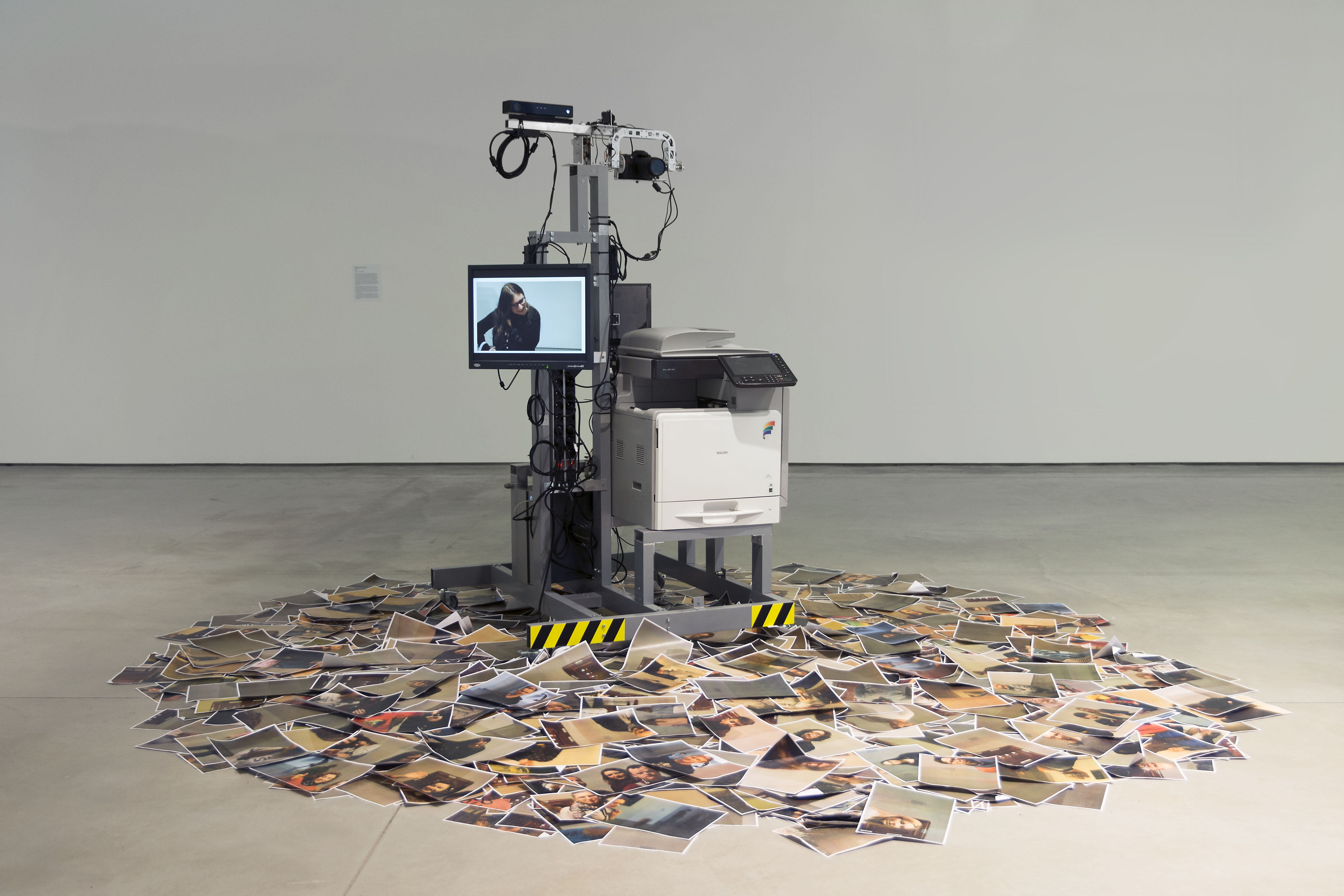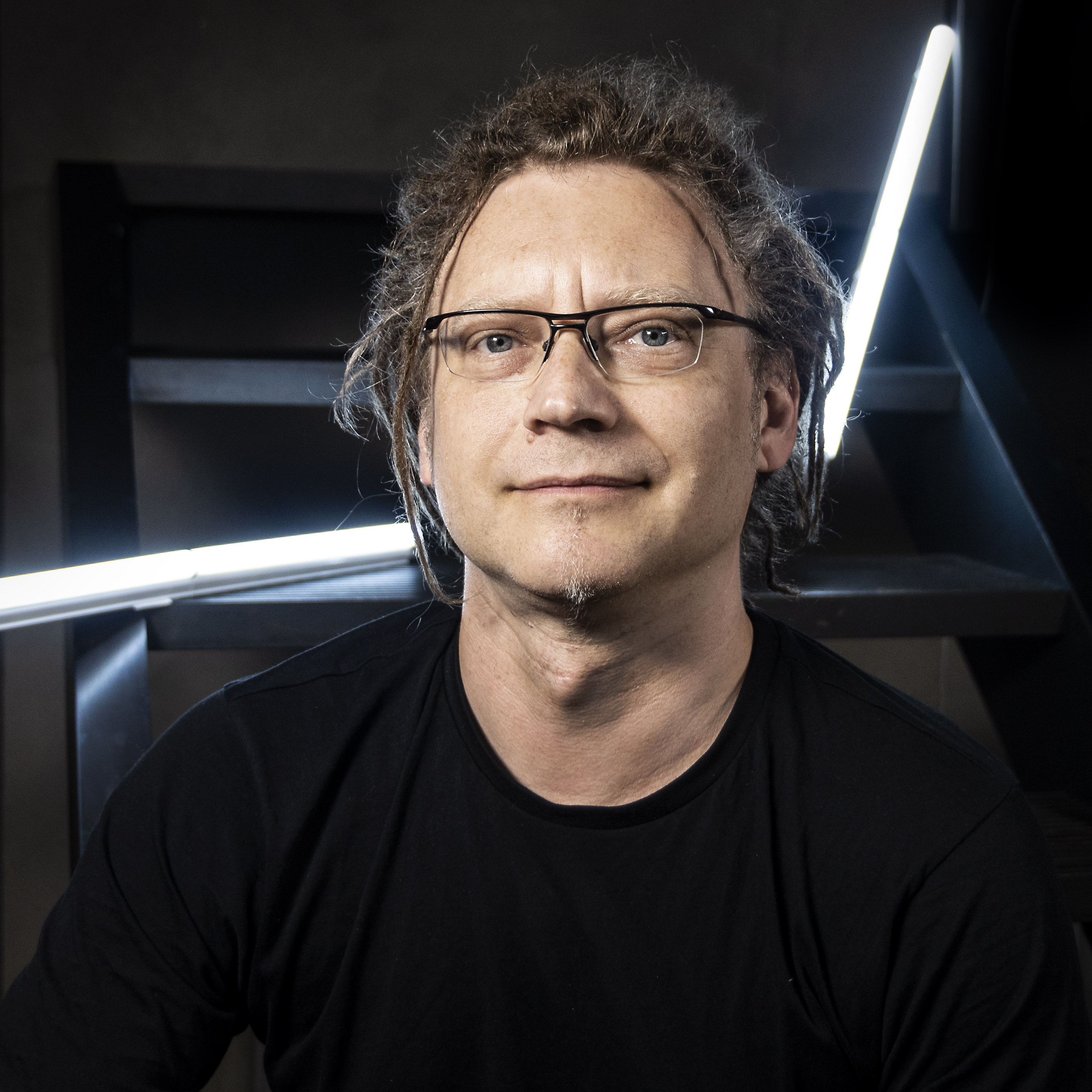Przemysław Jasielski (born 1970), artist, researcher, experimenter based in Poznan, Poland combining art with science and technology. Member of HAT Research Center at Adam Mickiewicz University. He creates installations, objects, drawings and photographs.
In the creative process he approaches work with the attitude of an engineer, adapting the precise planning and scientific research, with the main focus on the conceptual content.
Many of these works explore rituals of the everyday reality taking up a specific game with the imagination and wisdom of a viewer, with his habits shaped by daily routine of the contemporary world and his own presence in it. Most of them are both in close relation to the space and interactive – the spectator is allowed to play with them or even to change their shape. His works confront the actual present reality with its transformation to allow the viewer to observe it in a new, fresh way. They often try to take actions commonly seen as impossible, useless or ineffective. Also, they usually contain a specific, critical sense of humour.
Jasielski took part in several exhibitions all over the world – among others, one man shows such as Paper Bridge Over Stone Water at Tokyo Wonder Site (Tokyo, Japan, 2012), Analog Immigration at CSU Galleries (Cleveland OH, USA, 2013), and group shows - Apparat. Retrogression Through Technological Progress at The Sculpture Center (Cleveland OH, USA, 2016), L’arte differente: MOCAK al MAXXI at MAXXI (Rome, Italy, 2016), Draft Systems at WRO Media Art Biennale 2017 (Wroclaw, Poland, 2017), Nonsense Technologies (Krakow, Poland, 2017).

Artificial Unintelligence. Stubborn Machines and Sneaky Robots.
Since 2015, in a series of artworks (Emotions Control Unit, Photo Robotoid, Oracle), I conducted several experiments on Human-Robot Interaction. I was trying to test an experience of people jumping right into a relationship with artificial beings, even if they behave in an unexpected way. We are about to entrust their actions more than ourselves. We begin to treat them as individual beings with their own rights, and analyse their feelings. Yet, their social intelligence is only simulated by the program and does not reciprocate human’s emotions.
Critics call robots as “relational artifacts”: designed to work on producing our emotions towards them, that may be not yet recognised. Even by now they are obscured, artificial and one-way, which makes us wonder if they are psychologically satisfying.
Technology becomes unseen, and makes us modify our behaviour to match it up.
In my view, art should question consequences of enhancing technological development. I found out that my own idea passes with a very current research of Meredith Broussard. In her book "Artificial Unintelligence", she calls us to set limits of letting technology steer our lives. This concept appears to be the clue of my point of view on implementing technology into our existence. Our will to load most of everyday jobs and activities on robots, drives us to bring-in foolish technology massively. We don’t control how it exactly works anymore, and whether it’s proficient in the exact needed way.



